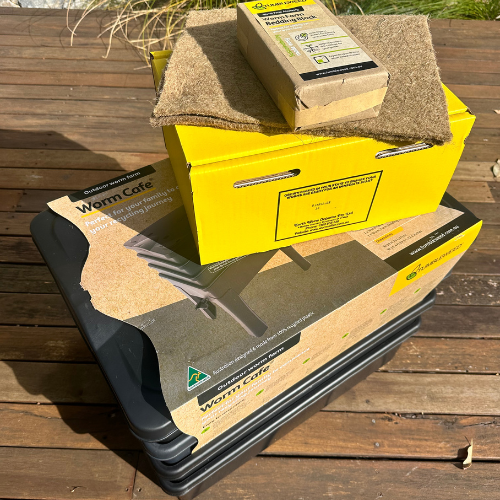Composting for a Greener Future: A Sustainable Journey
In our ever-evolving world, sustainability has become more than just a buzzword; it's a way of life. One impactful and surprisingly simple step towards a greener future is composting. At Mahalo Eco Blinds™, we believe in creating eco-friendly solutions, and today, we're delving into the wonderful world of composting and how it can help shape a more sustainable tomorrow.
Why Compost?
Composting is a natural process where organic materials like food scraps and yard waste break down into nutrient-rich soil. It's a win-win situation for both you and the environment.
1. Reduce Waste: By composting, you divert organic waste from landfills, reducing the burden on these already overflowing spaces. This means less trash and fewer harmful methane emissions, which may contribute to climate change.
2. Rich Garden Soil: Compost is often referred to as "black gold" for gardeners. It's a nutrient powerhouse that improves soil structure, water retention, and overall plant health. Whether you have a vast garden or a small balcony, compost can do wonders for your plants.
I personally love the Bokashi Buckets as the "liquid gold" is easily poured out of the spout ready to dilute and use in our garden!
3. Save Money: Composting at home means fewer trips to buy chemical fertilisers or bagged soil conditioners. Plus, it's a sustainable alternative to chemical-based gardening practices.
How to Start Composting
Ready to dip your toes into composting? Follow these simple steps to get started:
1. Choose a Location: Find a suitable spot in your yard or even on your balcony. You can use a compost bin or simply create a compost pile.
2. Collect Materials: Gather organic waste materials like fruit and vegetable scraps, coffee grounds, eggshells, and yard clippings. Avoid adding meat, dairy, or oily items, as they can attract pests.
3. Layer It Up: Alternate between green (nitrogen-rich) and brown (carbon-rich) materials. Green materials include kitchen scraps and fresh yard waste, while brown materials include dried leaves, straw, or newspaper.
4. Aerate and Moisturise: To help the decomposition process, turn your compost pile or use a compost tumbler regularly. Ensure it remains moist but not waterlogged.
5. Patience is Key: Composting is a gradual process, so be patient. Depending on conditions, it can take a few months to a year for your compost to mature.
What Can You Compost?
To make the most of your compost pile, it's crucial to know what can and cannot be composted.
Compostable Materials (Green):
- Fruit and vegetable scraps
- Coffee grounds and filters
- Tea bags (remove staples)
- Eggshells
- Grass clippings
- Leaves
- Plant trimmings
- Houseplant trimmings
- Young weeds (without seeds)
- Manure from herbivores (e.g., cows, horses, rabbits)
Materials to Avoid (Do Not Compost):
- Meat and fish scraps
- Dairy products
- Oily or greasy foods
- Diseased plants
- Pet waste (e.g., dog or cat poo)
- Coal or charcoal ash
- Glossy or coloured paper
- Synthetic chemicals or pesticides
Mahalo Eco Blinds™ and Composting
At Mahalo Eco Blinds™, we're dedicated to sustainable living, not just within your homes but also in your gardens. Our eco-friendly blinds are made from industrially compostable materials (because of their thickness), a testament to our commitment to a greener world. When you choose Mahalo Eco Blinds™, you're not only creating a safer indoor environment, but you're also supporting eco-conscious practices outside your home.
Embrace the Journey
Composting isn't just about waste reduction; it's about nurturing the Earth. It's a small step that can lead to significant changes in our world's health and vitality. By creating nutrient-rich soil and reducing waste, we're making a positive impact on our environment.
Let's embark on this journey together.
Leash





